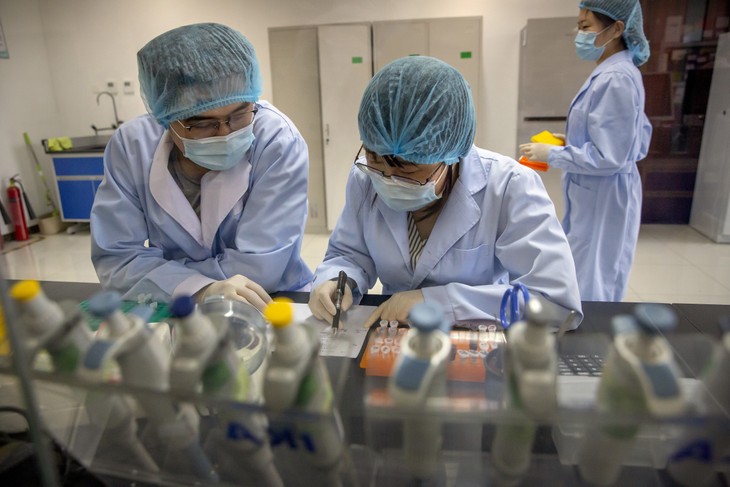Early Covid Data From China Removed By NIH AFTER REQUEST FROM CHINESE RESEARCHERS

BY RICK MORAN
republished below in full unedited for informational, educational & research purposes:
A scientist in Seattle says he has recovered what might be a crucial gene sequence that had been deleted from a National Institutes of Health database at the request of Chinese researchers.
Jesse Bloom, a computational biologist at the Fred Hutchinson Cancer Research Center in Seattle, posted the sequence in a paper he submitted to a non-peer-reviewed journal. “I recognize this is a hot-button topic,” Bloom said in an interview with The Washington Post. “It’s not a highly traditional scientific study, but at least it has some new data and new information.”
Scientists who have viewed the data say there’s nothing in it that proves or disproves the lab leak theory. But it still raises significant questions about NIH procedures that they were asked to delete the data in June 2020 — in the middle of a global pandemic and while the hunt for the origins of the coronavirus was well underway.
The NIH says they received the original data about three months prior to the request to delete it.
According to the NIH statement, the scientist who submitted the sequences requested in June 2020 that they be deleted because they had been updated and were to be posted to another, unspecified database. The investigator said they wanted the older version to be removed to avoid confusion, according to the NIH.
Chinese researchers initially submitted the sequences to the NIH database in March 2020 and published information about them in a paper on a preprint server, according to the NIH. The paper described the use of an advanced sequencing technology to detect SARS-CoV-2, the virus that causes Covid-19. The researchers didn’t immediately respond to a request for comment.
China’s National Health Commission didn’t immediately respond to a request for comment.
The data include information from several early Covid cases connected to the Wuhan food market in December 2019. Dr. Bloom speculates on why so little data from these early cases have been discovered. He says the removal of the sequences gave “a somewhat skewed picture of viruses circulating in Wuhan early on. It suggests possibly one reason why we haven’t seen more of these sequences is perhaps there hasn’t been a wholehearted effort to get them out there.”
That’s a very nice way of saying there’s a gigantic coverup going on.
Dr. Cooper, the University of Pittsburgh virologist, said the deleted sequences don’t resolve a continuing debate over whether the pandemic emerged from a lab accident or animal spillover into humans. “You could still argue it both ways,” he said.
But Dr. Bloom’s paper suggests that other early sequence data might still emerge, said Sergei Pond, a Temple University biology professor with expertise on the evolution of viral pathogens.
“If more sequences came to light, especially from early time points, or archival samples elsewhere, everything could change once again,” he said. “I think this is likely to happen.”
“It makes us wonder if there are other sequences like these that have been purged,” said Vaughn S. Cooper, a University of Pittsburgh evolutionary biologist.
For its part, the NIH says that removing the data at the request of the researcher is standard practice.
“These SARS-CoV-2 sequences were submitted for posting in SRA in March 2020 and subsequently requested to be withdrawn by the submitting investigator in June 2020. The requestor indicated the sequence information had been updated, was being submitted to another database, and wanted the data removed from SRA to avoid version control issues,” NIH said.
“Certainly, the consequence of removing the sequences was to obscure their existence,” Bloom told the Post in the interview.
Was it the intent of the researchers/Communist Party members to obscure the existence of the data? “Consequence” notwithstanding, the ultimate question of “why” needs to be answered by the researchers — or their bosses in the Chinese government.
